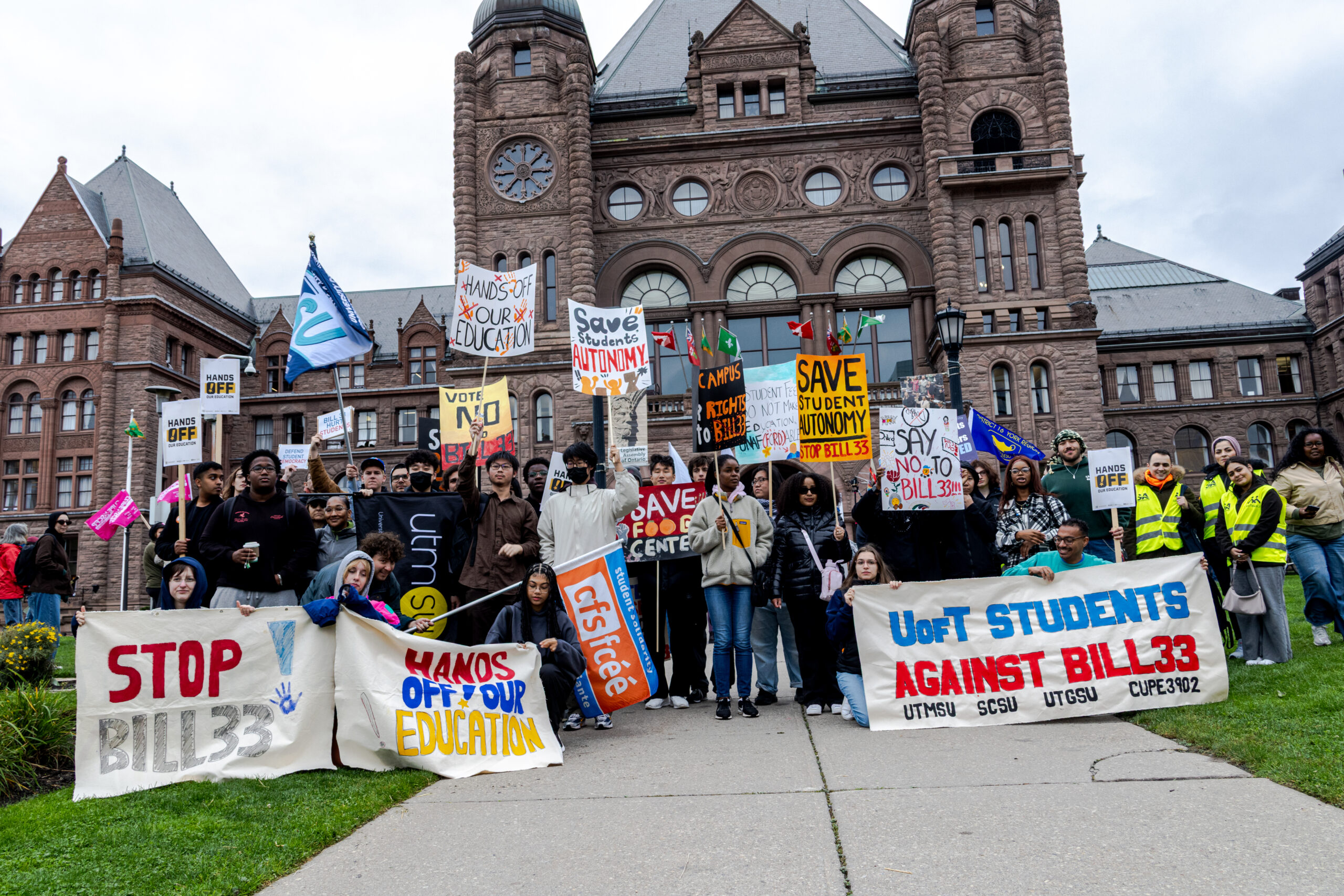When asked what he would say to the students affected by Russia’s recent invasion of Ukraine, vice president of Student Success Chris McGrath hesitated.
“In some ways, I’m at a bit of loss for words, because.. what do you say?”
George Brown College has identified approximately 250 international students who are of Ukrainian or Russian descent, and countless other domestic students of those heritages. Thus, a significant cross-section of the college’s population is at risk of being affected by the conflict, either directly or by way of their families.
Approaching a global event of this magnitude is a delicate affair for the college. The impact on students is multi-faceted and can be damaging to various areas of their lives. But to McGrath, no matter how complex or messy, having conversations about these effects and how GBC can provide for the needs of students is crucial.
Deciding how and when to respond to such a conflict involves careful consideration of who might be othered in the process. McGrath stipulated that taking a stance, however, matters much less than making sure students are taken care of.
“Our first priority is really to ensure that the broadest representation of our community is supported,” he said.
McGrath described GBC’s plan of action following the initial news of the invasion as an “immediate, individualized approach”.
With demographic information on international students in hand, academic chairs called students who were most likely to be affected. This acted as a check-in with students to be able to gauge what they needed immediately.
“We had some academic chairs who were phoning students individually all weekend long,” said McGrath.
A recurring issue for the students with whom staff had spoken was access to finances. The Ukraine crisis interrupted currency circulation in the country as well as international bank transfers. Beyond tuition fees, students who depended on this flagged the need for support with expenses such as rent, groceries and Wi-Fi.
To combat this, GBC set aside $250,000 for a Ukraine-related emergency bursary for non-tuition costs which can be accessed through an application process. The college has also been able to freeze student accounts, putting any fees or interest charges on hold. Unfortunately, tuition fees cannot be reduced due to ministry policy, but the college can help individuals pay over time. GBC is in the process of establishing a new scholarship fund for those who are experiencing conflict, further subsidizing tuition fees.
Tackling financial need in a practical way was not only helpful for the essentials, but for other important aspects of the student’s life as well. For example, making sure that students can pay for Wi-Fi allows them to keep in contact with their family and friends back home.
“Financial need often underpins any number of other issues that students have,” McGrath said.
Beyond that, McGrath says the strategy has been to offer as much as possible with understanding and empathy.
GBC counselling and international support services have offered drop-in sessions where students in similar situations can share their experiences and seek support.
In addition, since academic chairs had contacted students initially, many of them were able to wave assignment deadlines or offer Standing Deferred (SD) status to allow relief from the pressures of a typical school year. If students feel that they will be completely unable to finish their studies, GBC has offered an extended time period of academic withdrawal with no penalty and a full refund.
However, McGrath implores these individuals to speak to an international student advisor, as any of these decisions could have an effect on their study permit.
Student Association representatives also reached out to students to remind them of how they can access their health benefits and counselling here or from abroad, the Student Nutrition Access Program (SNAP) and the Equity and Care Relief Fund.
Admissions officers at GBC have been working collaboratively with college recruiters who are in the Eastern European area to ensure that study permits can be obtained as soon as possible, and that college application fees are waived.
“I’m very proud that we have a lot of options at our disposal, and we can activate all of them together to make an impact,” said McGrath.
Although these supports are new and continue to develop, the reaction from students so far has been very positive, especially given the number of resources available to them. Those who feel that they don’t need them are spreading the word to those who might.
McGrath encourages any and all students who have been affected by the war in Ukraine to make use of the above-mentioned services available.
“I hope for and pray for a degree of peaceful resolution sooner rather than later. But to our students, please just know that we are here for you in any way you need us. All you have to do is reach out and ask.”


